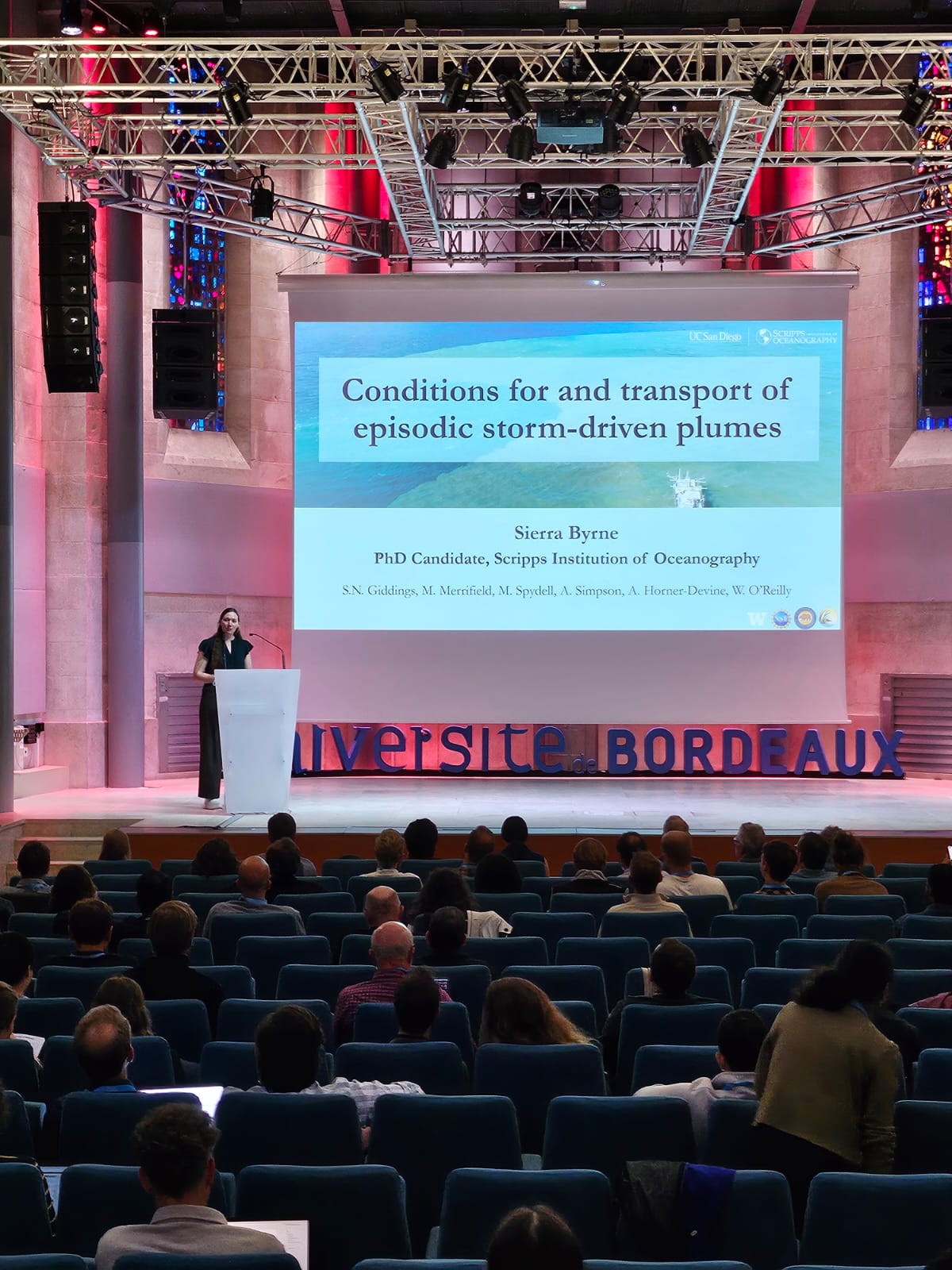Applied Ocean Sciences PhD candidate Sierra Byrne recently attended the International Conference on Physics of Estuaries and Coastal Seas through the support of the Julia R. Brown fund in order to present her research on storm-driven river plumes. In this blog post, Sierra shares her experience attending the conference.
In September 2024, I had the privilege of presenting at the 21st International Conference on Physics of Estuaries and Coastal Seas in Bordeaux, France. This 5 day conference brings together an international audience of scientists in the coastal physics realm. There are built-in networking activities in addition to the oral and poster presentations. I presented my talk “Conditions for and transport of episodic storm-driven river plumes” which is work I have done as part of my current PhD chapter. The research focuses on data collected during the Plumes in Nearshore Conditions, or PiNC experiment that took place in San Diego, CA in the winter of 2022-2023.
After presenting my work to this audience of specialized researchers, I engaged in many meaningful conversations surrounding the topic of river plumes. As a PhD student, this was a perfect opportunity to seek feedback from professors and postdocs who possess relevant expertise. The input I received from the community will help me refine my work as I prepare a manuscript and finalize my analysis.
During this conference, I also had the opportunity to learn about how different coastal systems may respond to rising sea levels due to climate change. The climate crisis emphasizes our need to understand how the physics of coastal environments works, so that we can extrapolate how these processes will respond to the impacts of climate change. Additionally, a few presentations focused on studies of man-made infrastructure and investigating their role in reducing the impacts of sea level rise and storm-related changes on coastal communities. This type of work will continue to become more critical to understand in the future.

This conference, with around 200 attendees, provided an invaluable week of networking. As this was my first introduction to the estuary and coastal physics community, I gained insight into which universities and organizations are conducting research in this field. This will help better inform my postdoctoral researcher and career hunting prospects now that I have a better idea for where to look for roles. Additionally, I was able to meet and mingle with these impactful researchers throughout the week, expanding my professional network.
Something I found most striking about this experience was the kindness and respectfulness of the community, especially towards early career professionals. I felt very supported as a student getting my footing in this new field. This kindness and the confidence it gifted me is something I plan to carry with me into the future as I become more well-established in the field, and hopefully I can help others to feel similarly accepted.
This conference and the knowledge I gained from it have encouraged me to think about my research, and my contribution to society, in a global context. It can be easy to become highly specialized upon your region of study but seeing research from similar but different systems in numerous countries reminded me that the impacts of this work span far beyond a single system. The growing body of literature about how our estuaries and coastlines operate and respond to events is going to only become more critical as we continue forward in a changing climate. I want to thank the Julia R. Brown Fund for Climate Change Research and Education for making this conference possible.


